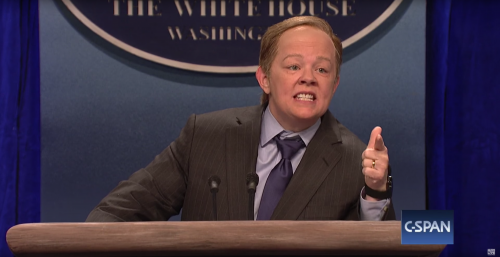Whether you support one political side or the other, or float lifelessly in the middle, a majority of Americans received some type of R & R over the last weekend. Last weekend’s events featured numerous tweets from President Donald Trump, cries of laughter from Saturday Night Live and an epic comeback from the New England Patriots in the Super Bowl LI.
Nationwide viewers gathered Sunday for appetizers, place bets and to watch the not-so-surprising politically charged advertisements.
Given Trump’s first two weeks in office, companies utilized their $5 million advertisement slot to reflect on his doings. Regardless if we think those doings are right or wrong, it’s safe to say that politics infested the weekend’s entertainment. Notable advertisements during the SuperBowl consist of Kia, Coca-Cola, 84Lumber and Budweiser. The main target of these commercials derive from Trump’s latest executive actions.
These political advertisements, also America’s entertainment, are filtering into our social media and news outlets excessively more than ever before. This is a whole new process for consumers nationwide to adapt to. But we seem to bask in the uproar — we participate, engage and argue with one another. These happenings tend to bring out the negative sides to our political standing rather than flashing a light on one’s stance.
“Unlike other presidential transitions, I don’t see a return to “normal” anytime soon,” DePaul’s public relations and advertising professional in residence Ron Culp said. “Bitterness and disbelief cloud any opportunity for compromise on one side of the aisle, and the other side seems willing to see how this plays out over the next several months.”

Obama was our normal. This transition, which these companies are trying to portray, is very fresh. We live in it and it’s happening right now.
“Social identity has become an integral part of our current political situation, so it makes sense for companies to capitalize on positive messages that spread love and acceptance,” senior Trevor Hollis said. “I think there’s such a heavy political focus in the media right now because level-headed people want to preserve the rights of certain social identities that are under attack.
A very popular episode of “Saturday Night Live” premiered the night before the Super Bowl. Host Kristen Stewart comprised a monologue in which she referred to her “Twilight” days and her relationship with Robert Pattinson. At the time Trump tweeted at her, not just once, but 11 times, about her role in the relationship.
Stewart fired back saying “The president is not a huge fan of me. But that is so OK. And, Donald, if you didn’t like me then, you’re really probably not going to like me now ‘cause I’m hosting “SNL” and I’m like, so gay dude.”
The one-two punch came with Melissa McCarthy’s brilliant persona of White House Press Secretary Sean Spicer. The skit pinpointed the relationship between the administration and the news media.
“Myself and the press have gotten off to a rocky start,” McCarthy said. “And when I say rocky start I mean it in the sense of ‘Rocky’ the movie because I came out here to punch you in the face.”
It’s quite difficult to ignore the material that “SNL” is evoking. Trump took to Twitter many times to downplay Alec Baldwin’s imitation of himself.
“I’d rather us be talking about the issues that the president is so committed to helping Americans on,” Spicer said. “But you know, it’s a part of American culture.”
“While frustrating to individuals on both sides of the political aisle, the current discourse may be creating a greater level of interest in politics than at any point since the 1960s. Unfortunately, the all-important middle ground is being lost in the current debate,” Culp said. “Currently, belligerent ‘I’m right/you’re wrong’ attitudes dominate political discourse. Media has been lured into the polarizing ‘he-said/she-said debate,’ which diminishes its reputation.”
Now reflecting back on the weekend, everywhere we glanced we were a target of some sort of political expression.
After the airing of the Budweiser and 84Lumber commercials during the Super Bowl, boycotts erupted on Twitter. #BoycottBudweiser began trending and harsh comments were made towards the company’s portrayal of immigrants.
“Sadly, many people are enjoying the current political turmoil. Failure of bi-partisanship didn’t just happen in the past year. It’s been festering for many years,” Culp said. “In the meantime, brands must be careful not to intentionally or accidentally embrace political positions that tick off their consumers and stakeholders.”
After the boycotts and the Twitter arguments, we must digress the reasoning behind why companies sell their products: to make a profit. And Americans turn to the satirical “SNL” for laughter and entertainment. These two causes are starting to bleed together, enforcing the audience to be turned one way or another, defeating the actual purpose to why we are involved in the first place.
“I think most people would like if politics were boring again. Nothing makes sense anymore,” Hollis said.







